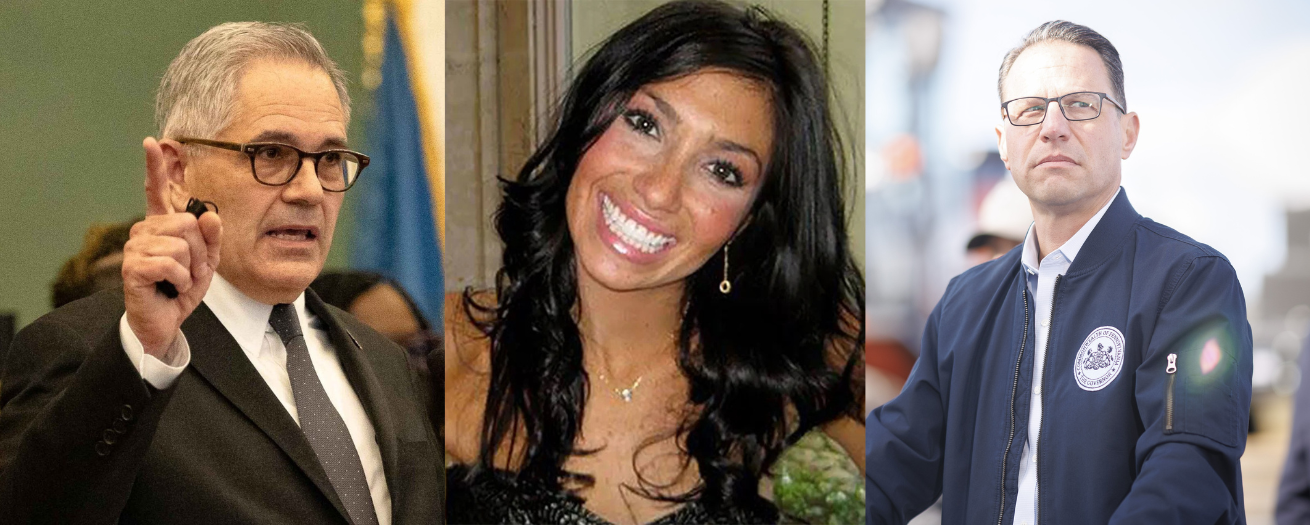The Ellen Greenberg case is a haunting Philadelphia mystery that has festered for over a decade, now cast in a renewed political light as District Attorney Larry Krasner faces controversy regarding his prosecutorial decisions. Ellen Greenberg’s death — ruled a suicide by the city’s medical examiner despite 20 stab wounds — continues to provoke demands for justice from her family and a broad public. Recent news has alleged troubling patterns about Krasner’s involvement with the Greenbergs before he became District Attorney, casting a shadow just as his office is mired in controversy following the release of a suspected killer in the Kada Scott case.
On January 26, 2011, Ellen Greenberg, a 27-year-old Philadelphia teacher, was found dead in her Manayunk apartment by her fiancé, Sam Goldberg. She was discovered with 20 stab wounds, including several to her back and neck, and eleven unexplained bruises. The unusual nature of her injuries, especially the locations and depth, immediately fueled suspicion. Her parents, Joshua and Sandra Greenberg, quickly became convinced Ellen was murdered, citing evidence from medical and forensic experts that the wounds were inconsistent with self-infliction.
Initially, the medical examiner classified Ellen’s death as a homicide but, within weeks and without full explanation to the family, changed the ruling to suicide. This reversal — combined with the lack of defensive wounds, absence of another person’s DNA on the knife, and evidence from surveillance and keycard records — left many unsatisfied, including the Greenbergs and a growing chorus of legal and forensic experts. The city has, as recently as 2025, reaffirmed the suicide ruling, but the family’s lawsuits continue to cite “deeply flawed” logic in the official narrative.
Before being elected as Philadelphia’s District Attorney, Larry Krasner represented the Greenberg family as their attorney. His role was to assist them in accessing case information from Philadelphia police and pushing for transparency in the investigation. This representation established a clear professional relationship with the family, one that later forced Krasner to recuse himself due to conflict of interest when he took public office in 2018.
In 2019, when the Greenbergs asked for the case to be re-reviewed, Krasner’s DA office referred the investigation to then-Attorney General Josh Shapiro’s office due to his prior role. The state AG ultimately maintained the suicide ruling, though a potential conflict related to family connections with Ellen’s fiancé contributed to the case’s eventual return to Philadelphia and referral to Chester County for another review.
The Greenberg family’s search for justice — once a personal cause for Krasner — remains unresolved.
The matter is compounded by the controversy surrounding the recent murder of Kada Scott, whose alleged killer, Keon King, was released after prior charges against him were dropped by Krasner’s office — a move justified under Krasner’s hallmark criminal justice reforms aimed at reducing pretrial detention and cash bail.
Court and police officials have contradicted Krasner’s claims that judges were solely responsible for King’s release, clarifying that the DA’s office could have pressed for stronger bail measures or pursued emergency appeals, both of which Krasner has been accused of neglecting. Community outcry, led by Scott’s family and civic leaders, points to a growing perception that Krasner’s policies have contributed to dangerous gaps in public safety, making his earlier, allegedly conflicted, handling of the Greenberg case appear even more troubling.
The juxtaposition of Krasner’s role in the unresolved Greenberg investigation — with its appearance of conflicts, deferrals, and lack of closure — next to his office’s controversial policy decisions in the Scott case, paints a damaging picture. Critics argue that both cases reveal a pattern where Krasner’s personal priorities or reformist agenda override transparency, victims’ families’ needs, and, ultimately, public safety.
These controversies have led to Judge Pat Dugan, his opponent in the imminent DA’s election, and activists to call Krasner a “co-conspirator” in tragic outcomes, pointing to systemic failures tied directly to prosecutorial discretion. Whether this public narrative will impact his political future remains uncertain, but the timeline — Ellen Greenberg’s parents still fighting for answers and Kada Scott’s family mourning a preventable tragedy — intensifies scrutiny over what many view as dangerously radical prosecutorial innovation unchecked by proper accountability.
In the end, the Greenberg and Scott cases may serve as enduring cautionary tales about conflicts of interest, the limits of criminal justice reform, and the necessity for transparent leadership at the highest levels of law enforcement.
Based in Philadelphia, A. Benjamin Mannes is a consultant and subject matter expert in security and criminal justice reform based on his own experiences on both sides of the criminal justice system. He is a corporate compliance executive who has served as a federal and municipal law enforcement officer, and as the former Director, Office of Investigations with the American Board of Internal Medicine. @PublicSafetySME
